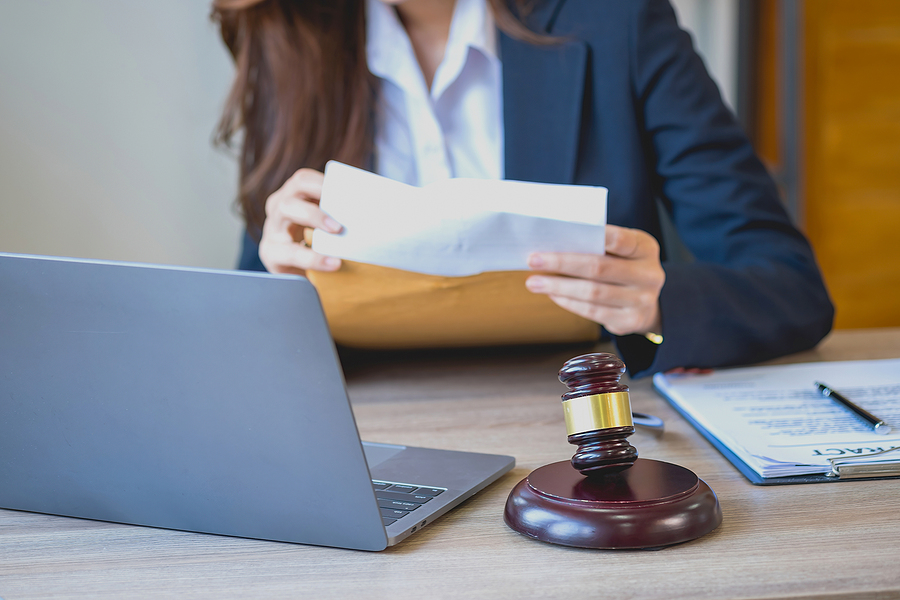According to the most recent available report (as of March 25, 2020) from the Virginia Department of Health, there have been 391 confirmed COVID-19 cases and 9 reported deaths in Virginia. The coronavirus health crisis, which has led to thousands of hospitalizations and forced the partial and total closure of countless businesses across the U.S., is expected to continue.
At Huffman & Huffman Brothers-in-Law, PLLC, nothing is more important to us than the safety and well-being of our clients, our attorneys and staff, and our community. Due to the amount of information—and misinformation—circulating on social media, the internet, and various news outlets, we realize that knowing how to protect yourself and your family during this time may not be clear. To that end, we’ve compiled helpful information from the Centers for Disease Control and Prevention (CDC) regarding the novel coronavirus, including COVID-19 symptoms, tips for staying healthy, and what to do if you or someone you love is sick.
We encourage you to review this information and implement the CDC’s recommended best practices so that you and your loved ones can stay safe, healthy, and well. As we navigate this uncertain and unprecedented time together, we at Huffman & Huffman are committed to continuing to serve as a trusted resource and advocate for those who look to us in their time of need.
What are the symptoms of Covid-19?
According to the CDC, the novel (new) coronavirus causes the following symptoms:
- Fever
- Shortness of breath
- Coughing
Symptoms can appear anywhere from 2 to 14 days after someone has been exposed to the virus. Current data shows that the majority of infected individuals exhibit mild symptoms; however, there are emergency warning signs of COVID-19 that you should be aware of.
These emergency warning signs include:
- Difficulty breathing
- Bluish face/lips and other signs of insufficient oxygen
- A feeling of pressure in the chest
- Chest pain that does not go away
- New or unexplained confusion
- Inability to arouse the affected individual
If you notice any of these or other emergency warning signs, seek immediate medical treatment. If you are experiencing concerning symptoms that are not listed here, contact your medical provider, as this is not a full list of emergency warning signs for coronavirus.
What to do if you feel ill
If you feel sick, are exhibiting COVID-19 symptoms, or have positively tested for COVID-19, there are certain steps you should take to ensure your own well-being and to help stop the spread of the virus.
If you are sick, the CDC recommends that you:
- Stay Home: According to the CDC, one of the primary ways in which the coronavirus is transmitted is through close contact with infected individuals. Specifically, the virus is spread in the respiratory droplets expelled when the affected individual sneezes, coughs, talks, etc. The only time you should leave home if you are sick is to seek medical care.
- Rest and Isolate: The CDC notes that most people with coronavirus have mild symptoms and are able to recover at home by resting. Mild symptoms may include coughing, shortness of breath, and a mild fever. To the best of your ability, isolate yourself from others, including others in your home. People who share your home with you should also self-quarantine.
- Communicate with Your Doctor: If you are concerned about your symptoms, but you are not showing emergency warning signs (listed above), the CDC recommends that you call your doctor before going in to their office. If you are experiencing emergency warning signs, be sure to get prompt medical attention.
- Postpone Non-Critical Medical Appointments: If you are able to do so, reschedule or postpone any non-emergency medical appointments. You can also find out if your doctor is offering phone appointments or virtual appointments. If you are not able to postpone a doctor’s visit, make sure to contact the office ahead of time and inform the staff that you may have COVID-19 to allow them to properly prepare for your visit.
- Avoid Using Public Transportation: To the best of your ability, avoid using public transportation to get to and from doctors’ appointments. This includes public buses, trains, subways, light rails, taxis, rideshares (Uber/Lyft), etc. If you must take public transportation while ill, stay at least six feet from others (if possible) and wear a facemask (if available).
How to prevent Covid-19 from spreading
Whether you are feeling sick, believe you were around someone who was sick, or are simply concerned with keeping yourself and your loved ones healthy, there are several steps you can take to help prevent the spread of coronavirus.
The CDC recommends that you do the following:
- Avoid contact with others
- If you must be in public, stay at least six feet away from others
- Wash your hands frequently with soap and warm water for at least 20 seconds at a time
- Disinfect “high-touch” and frequently used surfaces
- Use hand sanitizers and disinfectants that contain at least 60% alcohol
- Avoid touching your face, including your eyes, nose, mouth, and ears
- Cover your mouth and nose when you sneeze or cough
- Wear a facemask if you are sick or must care for someone who is sick
- Do NOT wear a facemask if you are not sick; there is currently a facemask shortage that is affecting health care workers and other at-risk individuals
For more information, please visit the CDC’s website. You can also find helpful and accurate information on the World Health Organization (WHO)’s website, as well as the website for the Virginia Department of Health.
 Text Us
Text Us  Call Us
Call Us 





